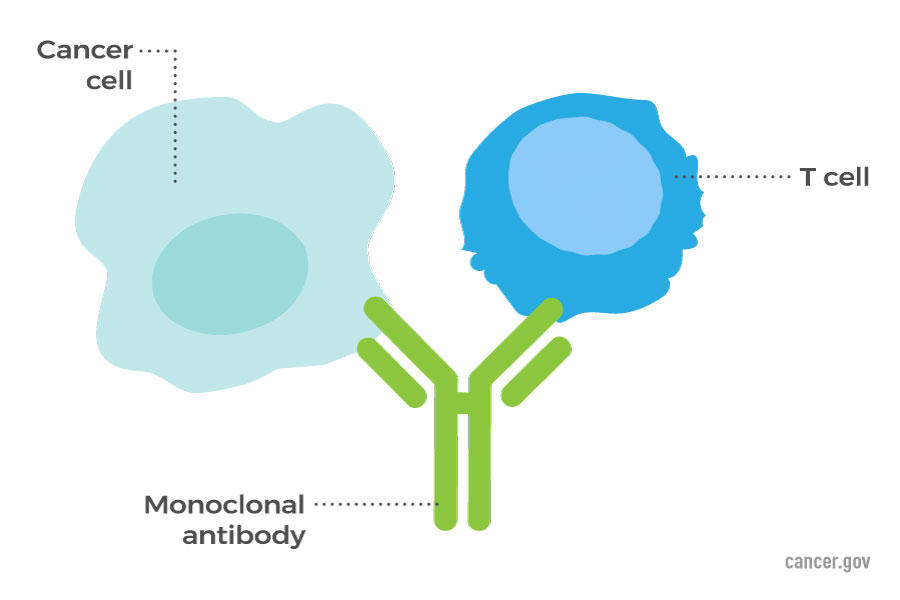Monoclonal Antibody Treatment: An Innovative Approach for Effective Medical Solutions
Monoclonal Antibody Treatment: An Innovative Approach for Effective Medical Solutions
 |
| source image : cancer.gov |
In recent years, the field of medicine has witnessed remarkable advancements in the realm of treatment options. One such breakthrough is the development of monoclonal antibody treatment. This innovative approach has revolutionized medical solutions by offering targeted therapies for various diseases and conditions. In this article, we will delve into the concept of monoclonal antibody treatment, its benefits, and its applications in the United States healthcare system.
What is Monoclonal Antibody Treatment?
Monoclonal antibody treatment involves the use of laboratory-produced antibodies that are designed to mimic the body's natural immune system response. These antibodies are engineered to specifically target and bind to certain proteins or cells associated with particular diseases or conditions. By doing so, they can effectively neutralize the harmful effects of these proteins or cells and provide therapeutic benefits.
The Benefits of Monoclonal Antibody Treatment
- Precision Targeting: One of the key advantages of monoclonal antibody treatment is its ability to precisely target specific molecules or cells involved in the disease process. This targeted approach minimizes damage to healthy cells and tissues, reducing the risk of side effects.
- Enhanced Efficacy: Monoclonal antibodies are designed to be highly potent and effective in combating diseases. They can neutralize pathogens, block receptors, or modulate immune responses, resulting in improved treatment outcomes.
- Versatility: Monoclonal antibodies have demonstrated efficacy in treating a wide range of diseases, including cancer, autoimmune disorders, infectious diseases, and inflammatory conditions. This versatility makes them a promising avenue for medical breakthroughs.
Applications of Monoclonal Antibody Treatment
- Cancer Treatment: Monoclonal antibodies have shown remarkable success in targeting cancer cells and inhibiting tumor growth. They can be used alone or in combination with other therapies, such as chemotherapy and radiation, to enhance treatment efficacy.
- Autoimmune Disorders: Monoclonal antibody treatment has provided new hope for individuals with autoimmune diseases, such as rheumatoid arthritis, psoriasis, and multiple sclerosis. These antibodies can help regulate the immune response and reduce inflammation, alleviating symptoms and improving quality of life.
- Infectious Diseases: Monoclonal antibodies have emerged as a potential treatment option for infectious diseases, including viral infections like COVID-19. They can neutralize the virus, prevent its entry into cells, and enhance the body's immune response against the pathogen.
Conclusion
Monoclonal antibody treatment represents a significant breakthrough in the field of medicine, offering targeted and effective therapies for various diseases and conditions. With its precision targeting, enhanced efficacy, and versatility, this innovative approach holds immense promise for revolutionizing medical treatments. As the United States continues to embrace advancements in healthcare, monoclonal antibody treatment is poised to play a pivotal role in providing solutions for patients in need.
FAQs
Are monoclonal antibody treatments safe?
- Yes, monoclonal antibody treatments have undergone rigorous testing and are generally considered safe. However, like any medical intervention, they may have potential side effects, which should be discussed with a healthcare professional.
How is monoclonal antibody treatment administered?
- Monoclonal antibody treatment can be administered through intravenous infusion or subcutaneous injection, depending on the specific disease and treatment protocol.
How long does monoclonal antibody treatment take to show results?
- The effectiveness of monoclonal antibody treatment can vary depending on the condition being treated. Some individuals may experience immediate benefits, while others may require multiple doses or longer treatment durations.
Are monoclonal antibody treatments covered by insurance?
- Coverage for monoclonal antibody treatments may vary depending on the specific insurance plan. It is recommended to consult with the insurance provider to understand coverage options.
What research is being conducted to further advance monoclonal antibody treatments?
- Ongoing research is focused on expanding the applications of monoclonal antibody treatments, developing new targets, and improving treatment efficacy. Clinical trials are being conducted to explore their potential in various disease areas.